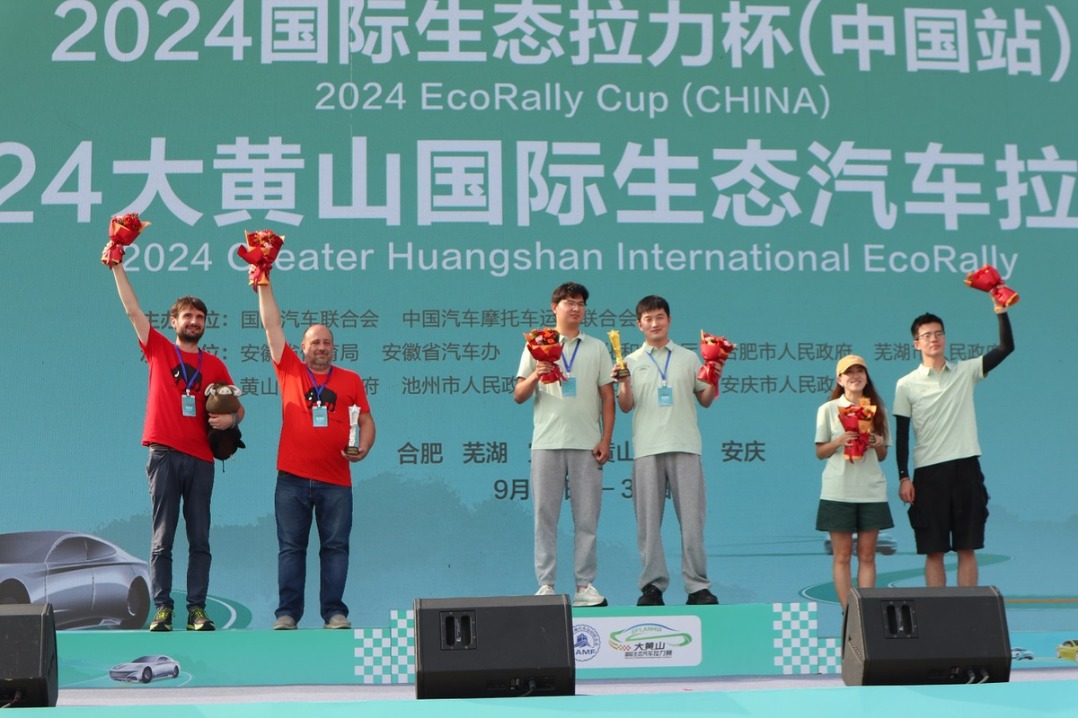Museum transformed from factory brings history to life in Southwest China


CHONGQING — Despite its secluded mountainous location, far from the hustle and bustle of the city, the Dayuanxiang Museum in the Bishan district of Southwest China's Chongqing municipality continues to draw visitors from across the country.
The private museum, transformed from the former Tianfu bowl factory, houses over 100,000 artifacts that reflect the ancient Bashu culture, including wooden carvings, stone statues and various other historical items.
"I was intrigued by the online images of a wall filled with Buddha statues. So, I took the opportunity of the holiday to visit Chongqing with my family," said Zhang Wenyi, a tourist from Guangzhou, in South China's Guangdong province.
"Beneath the museum's unassuming exterior lies a profound depth. As I walked through the exhibition halls, I could feel the aura of the Bashu people's past lives and catch a glimpse of the folk customs and culture of that era."
Spanning more than 3 hectares, the Dayuanxiang Museum features eight massive exhibition halls converted from spacious workshops, with collections meticulously displayed by category.
According to experts, the museum's collection of ancient architectural elements is sufficient to reconstruct hundreds of traditional residential courtyards. Upon entering one of the exhibition halls, visitors are greeted by wooden doors, windows and plaques from the Ming and Qing dynasties (1368-1911), all neatly arranged and displayed.
Liu Niu, the museum's 25-year-old curator, took over the reins from his father after graduating from university in 2021.
"These ancient architectural components, once scattered across the world, embody culture, art, family tradition and human values," Liu said. "Now, these relics carry forward the rich regional characteristics and ethnic memory of the Bashu area."
He said his father, a former real estate developer, had been deeply saddened by the destruction of traditional houses and the abandonment of ancient building components. "My father cherished traditional culture, and whenever he found old objects that appealed to him, he would purchase them and bring them home," Liu said.
His father amassed an ever-growing collection of old objects until there was no more space to store them. To accommodate the treasures, he bought the abandoned bowl factory in 2013 and transformed it into the museum's storage and exhibition space.
"This private museum aims to showcase 'home culture'," Liu said. "You can see the living spaces of our ancestors in Chongqing and Sichuan, the furnishings in their homes and the life philosophies of that time."
The museum displays also depict the ancestral spirits of migration, reproduction, labor and struggle, all of which are integral to Bashu culture, according to Liu.
The Dayuanxiang Museum hosts a series of themed activities every holiday. Visitors can explore the collections, savor local farm cuisine, participate in engaging courses, and purchase a variety of cultural and creative products, fully immersing themselves in the ancient cultural charm.
Xinhua
- Global reporters, influencers appreciate wisdom of Confucius
- The evolution of Chinese dining tables over 75 years
- Collaboration creates symphony of progress
- Scientist honored for deep-Earth exploration efforts
- Charting China's progress in 75 years (2)
- Yongchuan aspires to build high-tech 'movie city'





































